PTI bags five reserved seats in PA
PML-N moves LHC against its June 27 order to ECP
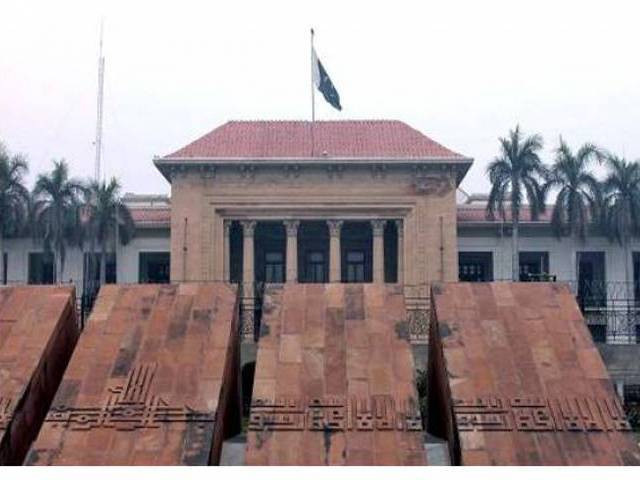
The PTI has bagged five more seats in the Punjab Assembly after the Election Commission of Pakistan (ECP) issued notifications of reserved seats, giving the party an edge over its rival, the PML-N.
The ECP issued the notification following the Lahore High Court’s directions.
The commission issued notifications of PTI’s Batool Janjua, Saira Raza and Fouzia Abbas for reserved seats for women.
It also issued notifications for two reserved minority seats, Habakkuk Gul and Samuel Yaqub – both belonging to the PTI.
The commission had summoned all five of them before issuing their notifications to scrutinise their papers.
A total of 25 PTI dissidents had voted for Hamza Shehbaz for the chief minister’ slot – five of them belonging to reserved seats.
The PTI had requested for the notifications of appointment of ot members for reserved seats in place of its dissidents that was granted.
The Supreme Court had recently ordered the re-election for the post of the Punjab chief minister on July 22. The by-elections would be held on July 17 for the seats of the remaining 20 PTI dissidents.
PTI Vice President Fawad Chaudhry wrote on Twitter that after a long battle, his party had won five reserved seats.
“After [this] the PTI and PML-Q have increased their seats to 173," he added.
He added that the combined tally of PML-N and PPP seats in the Punjab Assembly was 172 in addition to one Rah-e-Haq member and four independents.
Read ECP notifies PTI’s five MPAs on reserved seats in Punjab
“The Hamza government is counting its last days in Punjab.”
Separately, the PML-N has challenged the LHC decision wherein the ECP was directed to notify five members on the Punjab Assembly’s reserved seats.
A division bench of the LHC led by Justice Shahid Karim will take up its petition on Thursday (today).
Lawyer Mansoor Awan will represent the PML-N in this case.
The petition stated that through the judgment, the ECP has been directed to notify the members of the PTI for five vacant reserved seats for the Provincial Assembly of Punjab in violation of Articles 106(3)(c) and 224(6) of the Constitution. It added that move defied the proportional representation system for reserved seats as well as the structure of a provincial assembly created under Article 106 of the Constitution.
"The Provincial Assembly of Punjab is constituted under Article 106 of the Constitution. Article 106 provides for two categories of seats, general and reserved seats. Per Article 106(3)(a), elections to the general seats of the Provincial Assembly are conducted through direct elections. Whereas, elections for the reserve seats are conducted under Article 106(3)(c) through a system of proportional representation.”
The petition read that under the system of proportional representation for reserved seats, they were allotted based on the number of general seats secured by each political party in a provincial assembly.
"Thus, Article 106(3)(c) requires that the reserve seats, at any given time, should directly reflect the strength of a political party secured in general seats in the provincial assembly. Therefore, if the general seats have become vacant to such an extent that the overall representation of the political parties on general seats has altered, the reserved seats must correspond to the new proportion of general seats secured by each political party. Once the general seats of a provincial assembly are vacant, the reserved seats cannot be claimed as of right on the prior proportion which was calculated on the number of general seats held prior to the vacation of the general seats. Once, fresh elections for the general seats have taken place, only then can the quota for reserved seats be recalculated and the vacant reserve seats be filled to truly reflect the strength of the political parties through proportional representation.”
The petition contended that reading Article 224(6) of the Constitution in isolation suggested that it only dealt with situations where a reserved seat was left vacant and that too only on account of death, resignation or disqualification of a member in a provincial assembly.
"Article 224(6) does not provide for a mechanism for filling of vacancies for reserved seats where there has also been de-seating of members elected on general seats in a provincial assembly. In a situation where both reserved seats and general seats simultaneously become vacant, Article 224(6) must be read with Article 106(3)(c) of the Constitution. Reading Article 224(6) in isolation in a situation where both general seats and reserved seats are vacant would lead to disproportionate representation and violate Article 106(3)(c) of the Constitution. Filling reserve seats, prior to the fresh elections of general seats and based upon the quota calculated prior to the de-seating of the general members of the provincial assembly would incorrectly reflect the strength of the party in the provincial assembly.
"As a result, this would make Article 106(3)(c) completely redundant. It is a trite law that redundancy cannot be attributed to constitutional provisions and constitutional provisions cannot be interpreted to render any other provision ineffective.
The petition also contended that it was a trite principle of constitutional interpretation that to give effect to two conflicting provisions of the Constitution, their harmonious interpretation should be adopted.
"In the instant case, interpreting Article 224(6) in isolation would contravene Article 106(3)(c). Therefore, Article 224(6) must be harmoniously interpreted with Article 106(3)(c) to give effect to Article 106(3)(c) in situations where the general seats have also become vacant to an extent that the overall representation of the political parties on general seats has altered. In the instant case the de-seating of 20 general members of the Provincial Assembly of Punjab has altered the strength of the Respondent No. 5 in the Provincial Assembly of Punjab to such an extent where it affects its entitlement to the reserved seats, which it had obtained after the General Elections of 2018. In such a case, Article 106(3)(c) should have been read harmoniously with Article 224(4) and (6) to ensure that the by-elections take place prior to the filling of vacant reserved seats. By failing to harmoniously interpret Article 224(4) and (6) with Article 106(3)(c), the Impugned judgment went against the settled principles of constitutional interpretation."
The petition prayed the LHC to set aside its June 27 order as it was contrary to Articles 106(3)(c) and 224(4) & (6) of the Constitution.

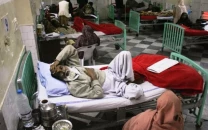
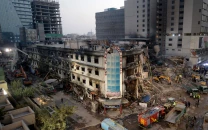
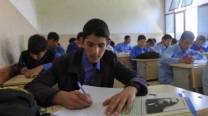
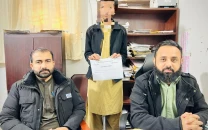














COMMENTS
Comments are moderated and generally will be posted if they are on-topic and not abusive.
For more information, please see our Comments FAQ